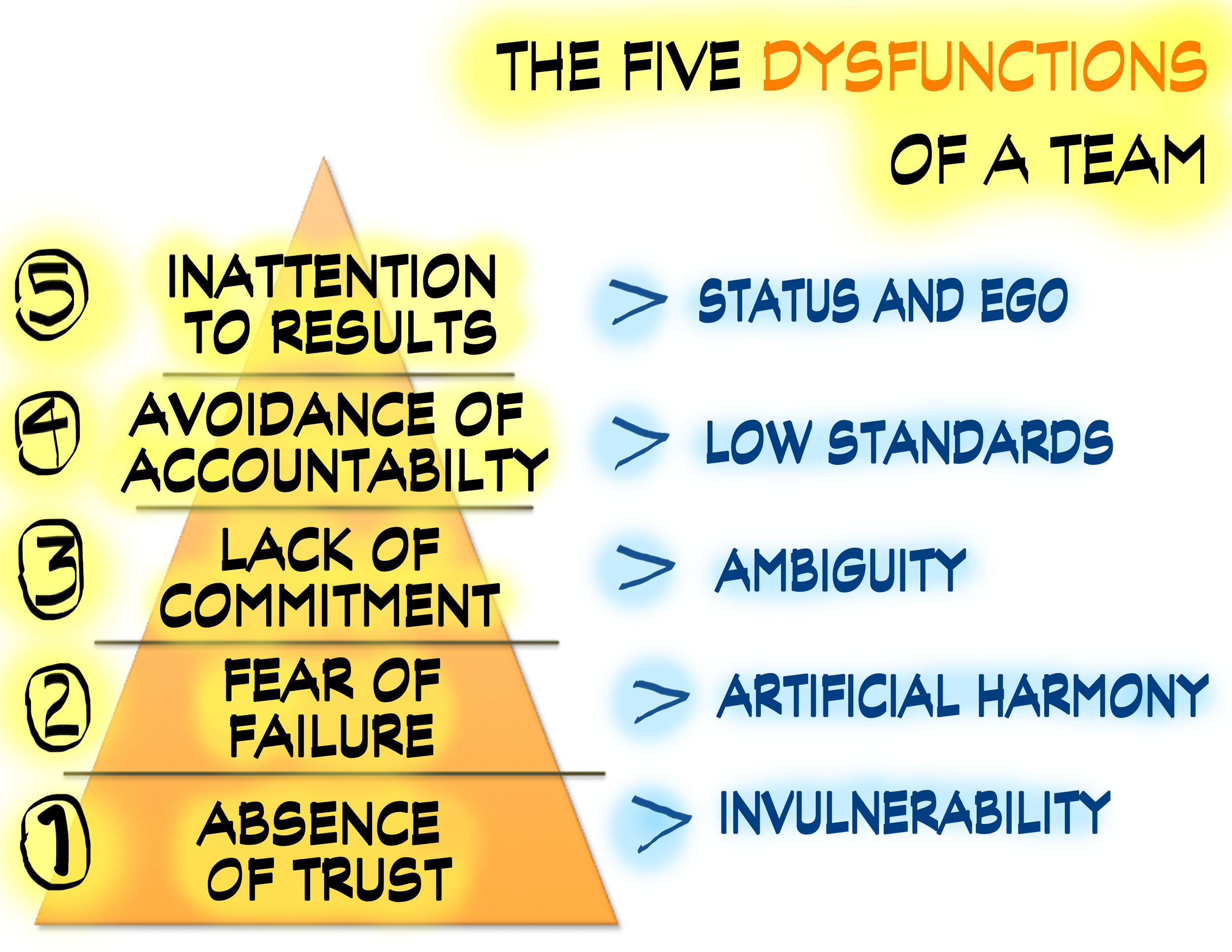The Five Dysfunctions of a Team Overview
“Patrick Lencioni is the author of this best selling book, which I have used as a foundation for teaching teams some of the major pitfalls that await organizations who need to perform at high levels. Since 2002, this model has helped create a fairly simple five-phased architecture for building a functional team. The process is simple to understand but challenging to implement as it takes years of effort and focus to see the true results of this process.”
Dysfunction #1: Absence of Trust
This occurs when team members are reluctant to be vulnerable with one another and are unwilling to admit their mistakes, weaknesses or needs for help. Without a certain comfort level among team members, a foundation of trust is impossible.
Dysfunction #2: Fear of Conflict
Teams that are lacking on trust are incapable of engaging in unfiltered, passionate debate about key issues, causing situations where team conflict can easily turn into veiled discussions and back channel comments. In a work setting where team members do not openly air their opinions, inferior decisions are the result.
Dysfunction #3: Lack of Commitment
Without conflict, it is difficult for team members to commit to decisions, creating an environment where ambiguity prevails. Lack of direction and commitment can make employees, particularly star employees, disgruntled.
Dysfunction #4: Avoidance of Accountability
When teams don't commit to a clear plan of action, even the most focused and driven individuals hesitate to call their peers on actions and behaviors that may seem counterproductive to the overall good of the team.
Dysfunction #5: Inattention to Results
Team members naturally tend to put their own needs (ego, career development, recognition, etc.) ahead of the collective goals of the team when individuals aren't held accountable. If a team has lost sight of the need for achievement, the business ultimately suffers.
How to Overcome the Five Dysfunctions of a Team
There are prescribed strategies that help leaders avoid these pitfalls. It is normal for teams to spend a considerable amount of time, energy and resources on the first dysfunction that addresses building trust. Many people struggle with this because some think it is too touchy-feely. Remember your greatest organizational asset is your people, and people are dynamic, each an individual that you need to lead as a team. Learning about people is crucial to leading them. It is messy, uncomfortable and time-consuming. The rewards of building trust can be life changing. I live that out every day.
I recommend starting with Emotional Intelligence Models, then on to DISC Management/Staff Assessments and finishing with Five Dysfunctions. From there we can put icing on the cake!
Contact me directly - we help with each step.
On Belay,
Dan Ashe


